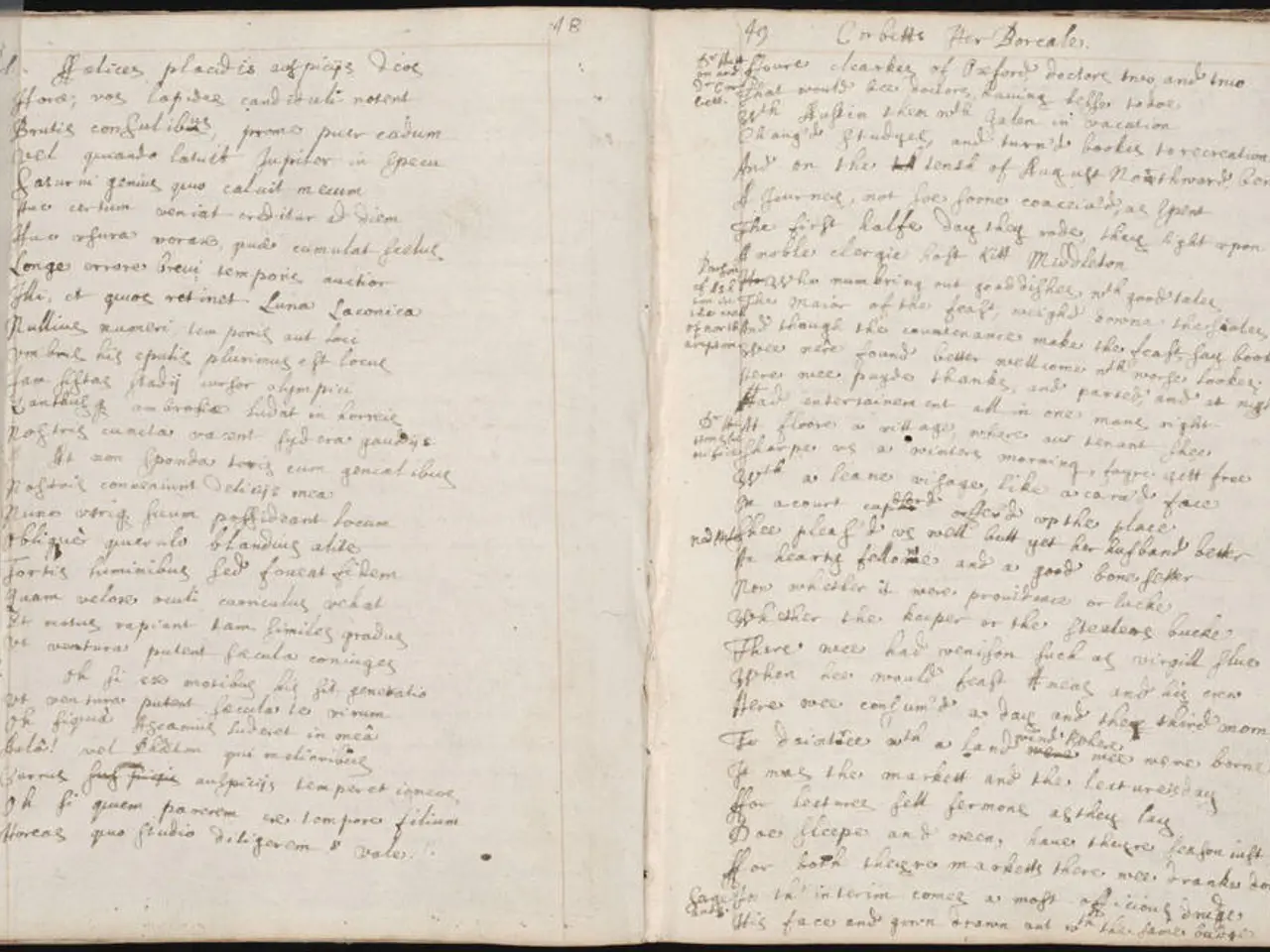The Importance of Collaborating with an Editor Prior to Approaching Literary Agents
In the world of publishing, making a strong first impression is crucial. One way to ensure that your manuscript stands out is by working with a skilled editor before pitching to literary agents.
Katie McCoach, a seasoned professional in the industry, emphasizes the value of editing in her blog. For those seeking advice on editing, writing, and publishing, McCoach's blog is a valuable resource.
Working with an editor before pitching significantly increases your chances of landing a literary agent. Editors provide detailed feedback, correcting errors, enhancing clarity, and improving pacing. This polishing process creates a stronger first impression for agents who sift through countless submissions.
One key aspect of editing's impact is the improvement of manuscript professionalism. By revising work according to editorial notes and even industry feedback, you align your manuscript with market standards, making it more appealing to agents.
Another benefit is the confidence and clarity that editing brings to the submission process. Editors help writers produce a final manuscript that meets industry expectations, allowing them to pitch with confidence. Agents prioritize manuscripts that show serious preparation rather than raw drafts.
Moreover, working with a reputable editor can help avoid scams and ensure you get quality services that genuinely enhance your manuscript. It's essential to choose an editor with clear contracts and transparent communications to ensure you receive the best possible service.
Having a manuscript professionally critiqued or read by beta readers can also improve its quality. Additionally, an editor can provide feedback on the query letter and synopsis to ensure they are strong, concise, professional, and well-written.
Remember, agents expect a manuscript to be as complete as possible before submission. The first 50 pages should be strong enough to grab an agent's attention and keep them interested. Agents usually do not help writers put together a complete manuscript; editors can assist in this regard.
It's also beneficial to make the most of the first pitch to agents, as they may not look at the same manuscript twice. Each agent may have specific guidelines regarding the number of pitches they will consider.
When a writer succeeds, their editor, agent, and publisher also benefit. Katie McCoach, a member of Romance Writers of America and the Editorial Freelancers Association, is currently writing a contemporary romance novel and can be followed on Twitter.
In summary, working with a skilled editor equips your manuscript with the polish and structural strength that agents look for, demonstrating your commitment to quality and increasing the likelihood they will request your work and offer representation. Make the most of this valuable resource to boost your chances of success in the competitive world of publishing.
- To increase the chances of getting noticed by literary agents, one can consider having a manuscript professionally critiqued by a reputable editor or even beta readers, as this can help refine the manuscript's quality and meet industry standards.
- Working with an editor not only improves the professionalism of your manuscript but also provides writers with a polished final version that aligns with industry expectations, giving them the confidence to pitch with assurance and stand out among the numerous submissions.




